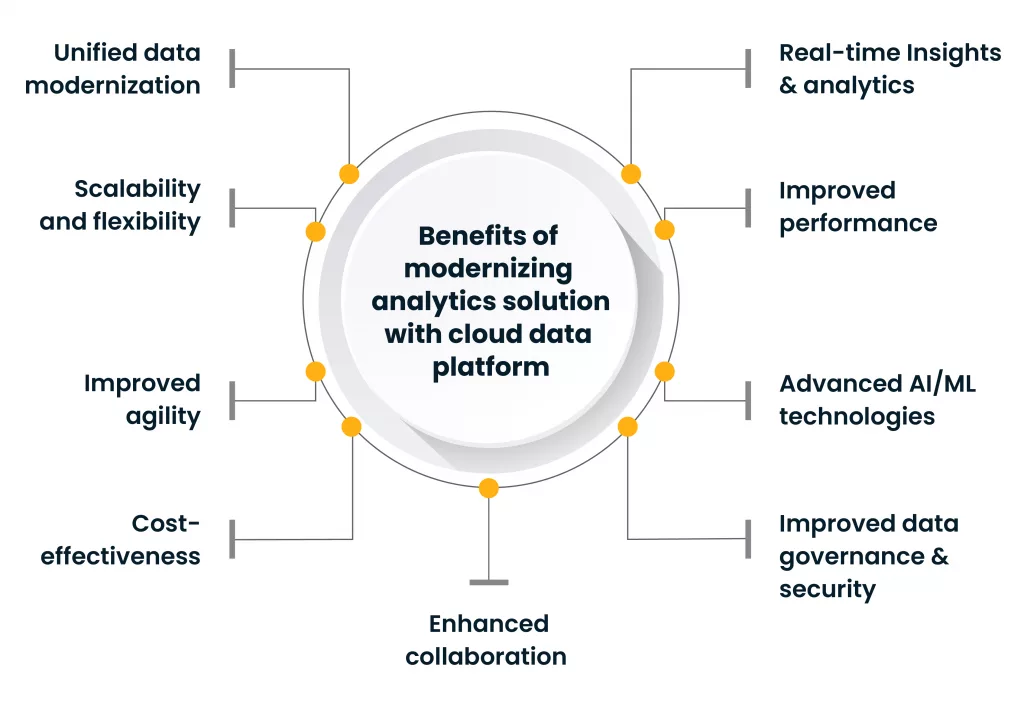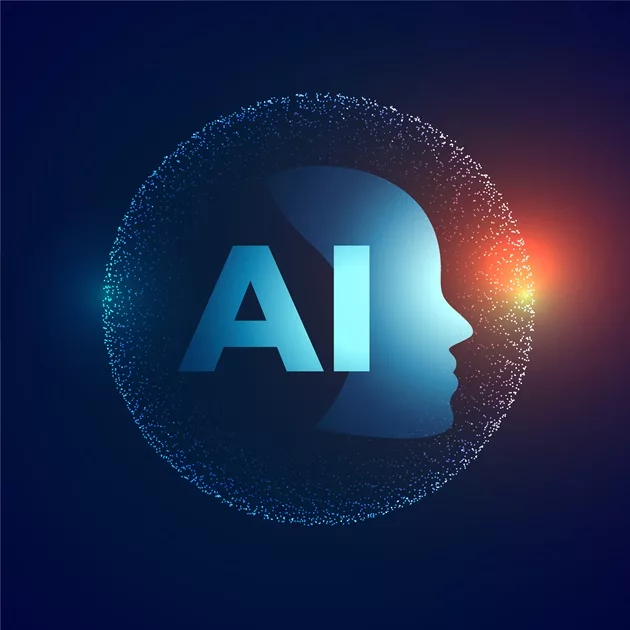According to The Digital Transformation in Tax Compliance and Statutory Reporting 2023 Survey Report, “a majority of statutory reporting professionals (78%) want to use data analytics more to advise the business.”
Further as per Deloitte’s The Analytics Advantage survey, “Nearly half of survey respondents (49 percent) assert that the greatest benefit of using data analytics is that it is a key factor in better decision-making capabilities. That number would likely be higher if organizations had better access or more resources to utilize their data in decision-making circumstances. 96% of respondents feel that analytics will become more important to their organizations in the next three years. Two reasons there is plenty of room to grow: a great deal of data is still not used for decision-making, and many organizations have only rudimentary analytical technology.
Further another Data Architecture and Strategy in the AI Era survey, 90% of IT leaders believe that unifying the data lifecycle on a single platform is critical for analytics and AI.
Analyzing the above surveys can make us understand that data is critical for business innovation, agility, and decision-making. Yet the majority of the business is still struggling with managing all datasets from different sources, lack of real-time analytics, integration of technology in data management, grappling with data silos challenges where data are available at their figure tip but restricts organizations when it comes to data sharing decision making, strategic planning, making it difficult for organizations to gain a holistic view on all data resources requiring businesses to understand the importance of unified data and single cloud data platforms for organizations.
Cloud Data Platform: Overview
A cloud data platform is a unified, scalable, and flexible ecosystem that enables organizations to extract, store, access, and analyze their entire data through the cloud. Unlike traditional on-premise storage methods, cloud data platforms leverage the cloud to handle massive data with high efficiency, agility, flexibility, and cost-effectiveness.
Cloud data platform act as a centralized hub where data from various sources, departments, etc in any form whether structured, semi-structured, or unstructured is ingested, unified in standard form, stored, and analyzed to break data silos in the organization thus facilitating data-driven decision making.
Cloud data platform facilitates integration with analytics solutions or secure data-sharing services and is less susceptible to failure as compared to the old on-premise system as multiple servers back them up. Break-ins or fires destructing data are no more a concern with cloud data platforms that can stand against such events.
Key Components in Cloud Data Platforms
- Data Ingestion is where data is collected from diverse sources like social media, IoT devices, applications, etc.
- Data Lake where unstructured or raw data are collected.
- Data Warehouse, where structuredand analysis data are stored.
- Data Processing is also considered a part where data is processed to get it cleaned and analytics ready by ETL (Extract, Transform, Load) processes for batch processing or real-time stream processing for immediate insights.
- Cloud service Integration such as analytics and business intelligence tools (e.g., Power BI, Google Looker) for reporting and visualization, as well as machine learning and AI tools to perform advanced predictive analytics.
- Security and Governance ensuring compliance with regulations through access control, encryption, and data monitoring.
While we understand the need for cloud data platforms for analytics solutions there are a lot of challenges due to data silos or legacy systems hindering the integration of cloud data platforms in transforming analytics solutions.
Challenges in the integration of cloud data platforms in transforming analytics solutions
- Data Silos or fragmentation– One of the primary issues for cloud data platform integration is the data itself. Data silos or fragmented data at various locations, lack of data sharing technology, variety of data formats, and lack of compatible technologies to bring data to the unified repository with advanced data sharing technologies with high-level security and access management control.
- Legacy Infrastructure– Legacy infrastructure presents significant challenges, including redundant data storage, poor data governance, limited data sharing, and difficulties integrating with modern technologies. Addressing these issues often requires substantial investment in new infrastructure or legacy system upgrades. Application modernization plays a critical role in overcoming these limitations, enabling organizations to transform outdated systems into agile, efficient, and scalable solutions—though the process can be time-consuming and resource-intensive.
- Cost Management– One of the benefits of a cloud data platform is its cost-effectiveness as it follows pay as you use approach but if that is not managed properly it would hinder this benefit and would become more costly therefore organization should have robust cost management which aligns cloud platform usage with business goals.
- Single vendor lock-in– For the integration of the cloud data platform evaluation of the correct third-party vendor is vital as relying only on a single vendor would create vendor lock-in which would make it difficult in future upgrades or integration or migration to other platforms, therefore evaluating vendor policies and entering into a contract with a room of flexibility is critical for businesses.
- Tech-expertise- Modernizing analytic solutions with cloud data platforms is not as easy as it seems while we discuss. It requires expertise in cloud technologies, data repository needs, data engineering, data analytics, AI, etc., and lacking such expert personnel may affect the integration process and quality that a final solution serves.
- Security and compliance issues– Data security is central when we talk about cloud data platforms or data-driven decision-making as it can affect critical business decisions if data gets tampered with or stolen. High data security, robust access management, data encryption, and meeting regulatory requirements are major concerns especially when dealing with cross-border data sharing.
- Difficulty in real-time analytics- Traditional data management tools may not support real-time analytics or data processing due to the limitation of data-siloed batch processing systems lacking timely insights and data-driven decision-making.
Benefits of modernizing analytics solution with cloud data platform
Modernizing analytics solutions by integrating cloud data platforms provides numerous benefits. Let’s discuss a few of them.

Unified data modernization
A cloud data platform is a key enabler of data modernization, consolidating and unifying data from diverse sources and formats into a single, standardized repository. By breaking down data silos and enabling seamless integration, it provides a unified view of enterprise data, streamlines data sharing, and establishes a single source of truth—critical for informed decision-making and operational efficiency in modern business environments.
Scalability and flexibility
With increasing business, there is growth in the volume of data which is difficult for old infrastructure and technologies to accommodate. Cloud plays a crucial part when it comes to providing scalability and flexibility. There are instances where organizations may be required to use additional facilities during their pick season As data needs grow, businesses can expand their resources without overhauling their infrastructure, enabling agile analytic solutions.
Improved agility
Cloud data platform brings increased agility to businesses by providing room for quick upgradation and adapting to changing business demands and needs, unlike old infrastructure which takes time and resources to introduce new features into the system. Further microservices and containerization have provided much flexibility to modify any particular area or component without affecting the entire solution. This agility helps organizations meet market demands and consumer needs.
Cost-effectiveness
Cloud technologies and resource optimization with cloud data platform architecture would support cost-cutting on infrastructure and maintenance to a large extent. Additionally, pay-as-you-use models help in reducing operational costs, and capital costs, allowing businesses to optimize cost-based usage and resource allocation.
Real-time Insights and analytics
Modern cloud platform supports real-time data processing, insights, and analytics. It offers special capabilities like stream processing which processes data and analyzes it as it is ingested leading to real-time insights.
Industry such as healthcare, e-commerce, etc which require crucial real-time decisions can enable cloud technologies to react instantly to changes in data, improving responsiveness and operational efficiency. Businesses can continuously monitor their data streams and receive immediate alerts when specific patterns, anomalies, or trends emerge, enabling proactive actions.
Improved performance
Leveraging cloud engineering services, the cloud-enabled modernized platform significantly enhances performance across data management, sharing, storage, and processing—while delivering real-time insights. Advanced features like in-memory indexing techniques dramatically reduce query times from hours to seconds, enabling immediate responsiveness and informed decision-making.
Advanced AI/ML technologies
The modern cloud data platform integrated AI/ML and other advanced technologies to provide predictive analytics, anomaly detection, and automated decision-making. It allows organizations to calculate highly complex and large volumes of data which creates profound data analytics and pattern recognition.
Cloud data platforms are designed to integrate with a wide variety of analytics tools, such as business intelligence (BI) software which allows businesses to visualize and interpret data. By offering pre-configured connections with analytics tools, cloud platforms reduce the time and effort required to get actionable insights from raw data.
Improved data governance and security
Cloud-based data platform provides in-build security features such as multi-factor authentication, data encryption, and role-based access management when data is at rest or in transit. Cloud providers invest in making their platforms compliant with various industry regulations. Cloud platforms also maintain audit trails of data access and modification making it easier for organizations to track who accessed their data and ensure compliance with external and internal standards.
Enhanced collaboration
Cloud data platform provides a centralized data repository enabling team members across different locations to access, analyze, and share data. This fosters collaboration, as insights can be shared instantly without delays caused by data silos or geographical constraints. The team can collectively work on dashboards and reports at various levels of the organization and can monitor analytics results together, ensuring alignment in decision-making.
Why Cygnet for your data analytics solution transformation?
Cygnet transforms analytics solutions through its comprehensive cloud data platform services, enabling businesses to unlock the full potential of their data. By seamlessly migrating legacy systems to modern cloud-native platforms, Cygnet ensures high data quality, real-time insights, and scalability. Their expertise in data visualization through tools like Power BI allows organizations to convert complex datasets into actionable insights via interactive dashboards and reports.
In addition, Cygnet leverages advanced AI/ML capabilities, including predictive analytics and anomaly detection, to enable businesses to make informed, proactive decisions. With robust data governance frameworks, they ensure data security, compliance, and integrity, fostering trust in decision-making processes. Cygnet’s integration of enterprise AI and hyperautomation further enhance operational efficiency and agility, empowering organizations to adapt swiftly to market demands and drive innovation.
Looking forward to embracing cloud data platform for transforming analytics solution
Cloud data platforms are revolutionizing the way organizations manage, analyze, and derive insights from their data. By overcoming the limitations of legacy systems and addressing challenges such as data silos, security concerns, and lack of real-time analytics, these platforms empower businesses to modernize their analytics capabilities effectively.
The ability to unify data, scale resources seamlessly, and leverage advanced AI/ML tools enables organizations to make data-driven decisions with agility and precision. Moreover, the integration of robust governance and security frameworks ensures compliance and safeguards sensitive data.
In a world driven by digital transformation, adopting a cloud data platform is no longer a luxury but a necessity for businesses aiming to stay competitive, innovate faster, and foster collaboration. The role of cloud in digital transformation is becoming increasingly significant, as highlighted in cloud and digital transformation. As businesses continue to prioritize analytics as a core driver of decision-making, cloud data platforms will play a pivotal role in shaping the future of data management and analytics solutions.






















